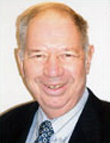|
|
Don't count too much on truth to be your salvation.
You may not know the truth in the hours immediately after a client is accused. The notion that your client "knowingly endangered the public" is a common charge, and you may not be apprised of the truth as to whether a deliberate concealment of product safety flaws or pollution actually occurred.
However, if you tell the media that you can't comment until you’ve had time to investigate, you run the risk that they’ll report you “didn't deny” what the client did. When the TV shows hundreds of angry protesters outside your client’s headquarters, or the company president walking away from journalists and cameras in the parking lot, that “didn't deny” characterization also applies.
The truth, experts tell you, is that the client is, in fact, guilty of harming the public. And not only is the client guilty, but company emails "show they knew about this years ago," and saw safety tests sets confirming that a number of cars or appliances don't work or even catch fire, reiterating what angry activists said on TV.
And increasing your problem in a crisis is the notion that while the accusers are accusing and your company is not denying until you get more facts, legislators on the federal and state level recognize they can look like heroes by proposing unduly restrictive regulations to protect the public and punish your client. Prosecutors, who may love publicity that could help them become Senators, look at whether some of your executives can be indicted and jailed.
Fortunately for you, this classic PR dilemma need not always be bad for you, and may even result in future success. Whatever your client is accused of, you can often make a valid case that you are protecting the public interest.
"A reality of life," some experts might remind you, is the notion that there will always be pollution, because every factory outputs a degree of waste; that there will always be some product failure, even if only one in a million; that clinical trials for drugs almost always show they don't work for some patients and actually make some worse. However, it’s a common PR blunder in product safety situations to quantify the peril, diminishing it as insignificantly small.
A better idea would be to state the positive opposite, pointing out how that product protects people.
For instance, California once had a Proposition 13 on its ballot, which would have closed nuclear power plants. Student groups were marching and yelling accusations that nuclear presents an unacceptable level of peril to the public. Activists were weeping in the streets and chaining themselves together.
At first, industry lawyers tried arguing that in life, some risks are unavoidable. That tactic flopped completely. Then savvy crisis management experts were called in and successfully pointed out several truths about the public interest, namely: that nuclear protects us against an unacceptable level of peril from air pollution — namely, coal dust pollution and oil residue pollution — that could kill thousands of Americans every year; that nuclear lowers electricity bills and taxes in a world running out of oil; and that nuclear protects us against major unemployment and reduced value of our homes if manufacturers move to another state where electricity and taxes are more affordable.
Demonstrations ended and Prop. 13 was defeated. About 20 percent of America's electricity today now comes from nuclear plants. A PR reality is that when you present the public with an honest choice of perils — air pollution now, unemployment now and higher costs for electricity and taxes soon, or the rare chance of peril years from now, which hundreds of America's top university professors say won’t happen — the public tends to favor likely benefit over an extremely unlikely one. After all, there was once a time when some believed automobiles "with internal combustion engines" could blow up if allowed on our roads.
By helping the public realize the truth about the public interest, facts can prevail over fears.
Ron Levy is a veteran New York communications pro.



 There’s a fine line between newsjacking and taking advantage, aka ambulance chasing. Our job as PR professionals is to tread it carefully.
There’s a fine line between newsjacking and taking advantage, aka ambulance chasing. Our job as PR professionals is to tread it carefully. PR firms need to be mindful of ways their work product may be protected by the attorney-client privilege whenever working with a client’s internal legal team or its external legal counsel.
PR firms need to be mindful of ways their work product may be protected by the attorney-client privilege whenever working with a client’s internal legal team or its external legal counsel. Manuel Rocha, former US ambassador and intenational business advisor to LLYC, plans to plead guilty to charges that he was a secret agent for Cuba.
Manuel Rocha, former US ambassador and intenational business advisor to LLYC, plans to plead guilty to charges that he was a secret agent for Cuba. CEO mentoring is an often-overlooked aspect of why CEOs are able to make good decisions, and sometimes make bad ones—all of which intersects with the role and duties of a board.
CEO mentoring is an often-overlooked aspect of why CEOs are able to make good decisions, and sometimes make bad ones—all of which intersects with the role and duties of a board.  How organizations can anticipate, prepare and respond to crises in an increasingly complex world where a convergent landscape of global challenges, threats and risks seem to arrive at an unrelenting pace.
How organizations can anticipate, prepare and respond to crises in an increasingly complex world where a convergent landscape of global challenges, threats and risks seem to arrive at an unrelenting pace.


 Have a comment? Send it to
Have a comment? Send it to 
No comments have been submitted for this story yet.